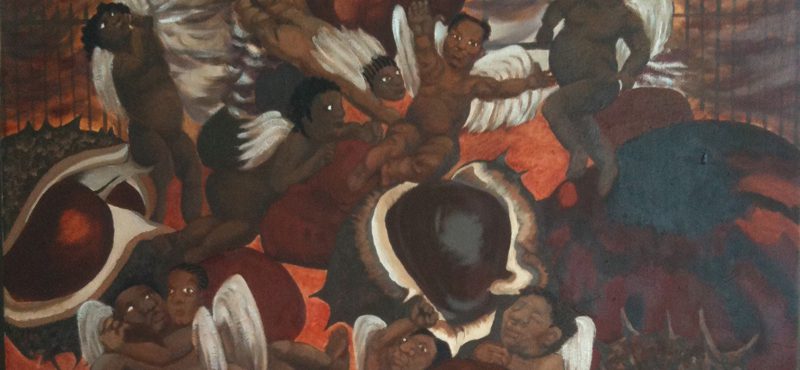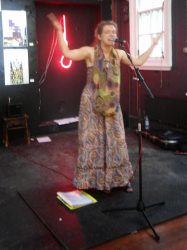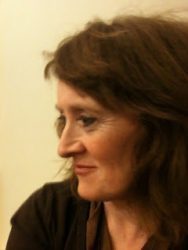January’s Event: Special Guests – Ursula Troche and Jenny Jones
Dialogues on Otherness in Research and practice
‘In my own (performance poetry based) research, I am ‘dealing with myself’ as an othered person of a kind that still needs explanation – hence another kind of otherness. In my case, this means explaining what it means to be ‘neither Black nor British’, why this is relevant, and how this is part of the postcolonial debate even if I do not originate from a colonised country. I do not therefore speak from the margins or the centre (e.g. hooks 1984), even though this framework is important for my location; I speak from the ‘boundary’ – as yet another kind of ‘Other’. This also leads me to an investigation of the psychological aspect of this debate, which shares with postcolonial studies an analysis of ‘otherness’, if from a different angle (i.e. Lacan). This then, is another investigation of and on otherness, which build on Stuart Hall’s investigations of around this theme, specifically his notion of ‘new ethnicities’. Lastly, I want to come back to the question of dialogue: how can (this) research contribute to open up the wider need to continue to break silences around ‘otherness’ and ‘race’ and critiques of dominant discourses.’ Performance poet, life model, writer and photographer Ursula Troche
————–
Artist, teacher and writer Jenny Jones will also present Re-imagining Old Chestnuts
‘In this talk I present questions arising from paintings I made as part of the group show “Lodgistics” made in response to College Lodge in Dulwich Park, South London. The renovated Lodge, now a ‘multicultural’ arts centre run by the charity Whippersnappers, stands opposite the Dulwich Picture Gallery, the oldest public art gallery in Britain. The paintings depict ‘Black’ cherubs together with conkers, the seeds of the horse chestnut tree.
My artwork has always arisen from lived experience and the perceived ‘trouble’ with this research is threefold. Firstly: is there or isn’t there a sense of taboo in a ‘White’ (working class) woman picturing ‘Black’ figures, from her own imagination? (eg: the perception of appropriating ‘Black’ art?). Secondly, the histories I researched in the making of the work: Kemet, the Bible, the Formorians and Rudolf Steiner’s writings are all marginalised knowledge, discounted as mythological, unscientific or transcendent. Thirdly, the models for ‘White’ picturing ‘Black’ in visual representation have often been heavily criticised. One example being how Parisian avant garde artists’ ‘Negrophilia’ in the 1920’s was seen to be associating ‘Black’ people with the ‘primitive’. I will be using this painting to open up discussions around ‘transgressive texts’ (Toni Morrison), aesthetics and self-racialization. Finally I want to raise the question: How do ‘White’ artists work to indicate their allegiance with anti-racism and critique ‘White’ privilege without being ‘happy’ or ‘proud’ (Sarah Ahmed).’
The Stuart Hall Library Research Network is a meeting place for discussion of practice-based or more conventional forms of research that may include: curatorial practice; visual arts; global art; film and media; cultural studies; cultural activism; postcolonial studies; literary studies, including criticism and theory. We are also looking for exciting and engaging ways of uncovering research, presenting in a variety of forms. This might include individual presentations, presentations in pairs, in conversation/dialogue with each other, or presenting a group project.
If you are interested in introducing your research to an informal, engaged audience, please email a 250 word summary of your intended presentation to Sonia Hope, Library Manager at library@iniva.org


